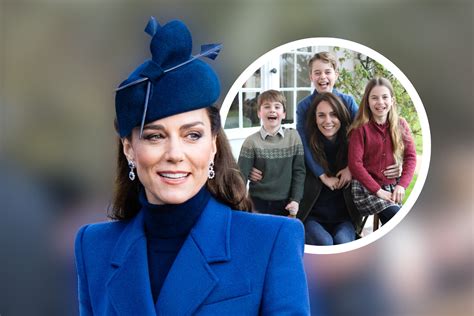
Hollywood’s enduring power couple, Liev Schreiber and Naomi Watts, after 18 years and two children together, are opening up about their conscious decision to never marry, emphasizing their relationship transcends traditional labels and societal expectations.
Naomi Watts and Liev Schreiber, two of Hollywood’s most respected actors, have revealed the deliberate reasoning behind their long-term commitment without marriage. In a recent interview, the pair, who were together for 18 years and share two children, Alexander (Sasha) and Samuel Kai, articulated that their profound connection and family unit were built on a foundation of love, respect, and choice, rather than a legal contract. This revelation offers a glimpse into their unconventional approach to partnership and family dynamics in the often scrutinized world of celebrity relationships.
“We’re quite proud of that because it’s pretty unusual,” Watts stated, reflecting on their lengthy relationship. They consciously opted for a path that prioritized their individual needs and mutual growth, while simultaneously nurturing a stable and loving environment for their children. Their decision underscores a broader societal shift towards diverse relationship models, challenging the traditional notion that marriage is the sole determinant of a successful and committed partnership.
Watts and Schreiber’s journey began in 2005, and their separation in 2016 surprised many fans, who admired their seemingly unwavering bond. Despite the breakup, they have remained deeply committed to co-parenting their children, fostering an environment of stability and mutual respect. Their ability to navigate the complexities of separation while prioritizing their children’s well-being has become a notable example of modern co-parenting.
In the interview, Watts articulated their perspective on marriage, explaining, “We’ve never really spoken about it that much, to be honest. It’s not like it was a burning issue for either of us.” This candid statement highlights their shared understanding and acceptance of their relationship’s unique dynamic, free from the pressures of societal norms or external expectations.
Schreiber echoed this sentiment, emphasizing that their decision was mutual and deeply personal. “Sometimes things just work, and you don’t need to question them,” he said. Their relationship exemplified a deep connection and shared values, proving that commitment can manifest in various forms beyond legal matrimony.
The pair’s decision not to marry wasn’t a rejection of the institution itself but rather a conscious choice to define their relationship on their own terms. Their story resonates with many modern couples who are increasingly questioning traditional relationship paradigms and seeking alternatives that better suit their individual needs and values.
The discourse around their relationship has also shed light on broader discussions about the evolving nature of partnerships and family structures. In an era where individualism and self-determination are highly valued, more couples are opting for unconventional arrangements that prioritize personal growth and fulfillment. Watts and Schreiber’s narrative contributes to this ongoing dialogue, offering a compelling example of how commitment, love, and family can thrive outside the confines of marriage.
Watts and Schreiber first crossed paths at the annual Metropolitan Museum of Art’s Costume Institute Gala in 2005. Their connection was immediate and profound, leading to a rapid and intense romance. Within a few short years, they welcomed their two sons, solidifying their bond as a family. Their early years were marked by a sense of adventure and mutual support, as they navigated the demands of their respective careers while building a life together.
Despite their demanding schedules, Watts and Schreiber prioritized spending quality time with their children, often taking them on set and involving them in their creative endeavors. This commitment to family fostered a close-knit environment, reinforcing their roles as dedicated and engaged parents. Their ability to balance their professional lives with their family responsibilities became a hallmark of their relationship, earning them admiration from fans and peers alike.
Their separation in 2016 was a challenging period for both Watts and Schreiber. However, they approached the situation with a remarkable level of maturity and respect, prioritizing the well-being of their children above all else. They established a co-parenting arrangement that allowed them to maintain a stable and supportive environment for Sasha and Kai, ensuring that both parents remained actively involved in their lives.
Watts and Schreiber’s commitment to co-parenting has been widely praised, with many lauding their ability to navigate the complexities of separation while maintaining a strong and positive relationship. They have demonstrated that it is possible to create a healthy and nurturing environment for children, even when parents are no longer together romantically.
Since their separation, both Watts and Schreiber have moved on to new relationships. Watts is now married to actor Billy Crudup, while Schreiber is married to Taylor Neisen. Despite these changes, they have remained steadfast in their commitment to co-parenting, continuing to prioritize the needs of their children.
Their ability to navigate these transitions with grace and maturity has further solidified their reputation as role models for modern families. They have shown that it is possible to maintain a sense of stability and continuity for children, even amidst significant life changes. Their story serves as an inspiration to others who are navigating the challenges of co-parenting and blended families.
Watts and Schreiber’s decision not to marry was not an isolated choice but rather a reflection of their broader approach to life and relationships. They have consistently prioritized authenticity, individuality, and personal growth, both in their professional lives and in their personal relationships. Their willingness to challenge societal norms and embrace unconventional paths has been a defining characteristic of their journey together.
Their story resonates with many individuals who are seeking to define their relationships on their own terms, free from the constraints of tradition and expectation. They have demonstrated that it is possible to create a fulfilling and meaningful partnership without adhering to conventional structures. Their narrative contributes to the ongoing conversation about the evolving nature of relationships and the importance of individual agency.
The legacy of Watts and Schreiber’s relationship extends beyond their individual story. They have become symbols of a new era of partnerships, characterized by mutual respect, personal growth, and a willingness to challenge the status quo. Their journey has inspired countless others to embrace their own unique paths and to define their relationships in ways that align with their values and aspirations.
Their impact on the entertainment industry is also significant. As accomplished actors, they have consistently delivered compelling performances that showcase their talent and versatility. Their work has garnered critical acclaim and numerous awards, solidifying their status as leading figures in the world of film and television.
Beyond their professional achievements, Watts and Schreiber have also used their platform to advocate for various causes, including environmental conservation, children’s rights, and mental health awareness. Their commitment to social responsibility has further enhanced their reputation as influential and compassionate individuals.
Their story serves as a reminder that relationships are not defined by legal contracts or societal expectations but rather by the depth of connection, mutual respect, and shared values. Watts and Schreiber have demonstrated that it is possible to create a lasting and meaningful partnership based on these principles, regardless of whether it conforms to traditional norms.
Their journey is a testament to the power of choice, the importance of authenticity, and the enduring strength of love and commitment. Watts and Schreiber have left an indelible mark on both the entertainment industry and the broader cultural landscape, inspiring others to embrace their own unique paths and to define their relationships on their own terms.
Naomi Watts and Liev Schreiber’s enduring bond, even after their separation, exemplifies a new paradigm in modern relationships. Their ability to co-parent harmoniously and prioritize their children’s well-being underscores their commitment to family, proving that love and respect can transcend traditional relationship structures. Their narrative not only challenges societal norms but also provides a blueprint for navigating the complexities of modern family dynamics with grace and maturity.
Theirs is a story of conscious choices, mutual respect, and unwavering dedication to their children. It’s a narrative that resonates deeply in an era where individuals are increasingly seeking to define their relationships on their own terms, free from the constraints of societal expectations. The impact of their relationship, both during their time together and after their separation, continues to inspire and shape conversations about love, commitment, and family in the 21st century.
In conclusion, Naomi Watts and Liev Schreiber’s 18-year relationship stands as a testament to the evolving nature of partnerships in the modern era. Their decision not to marry, their commitment to co-parenting, and their ability to maintain a respectful and supportive relationship despite their separation highlight the importance of individual agency and conscious choice in defining personal relationships. Their story serves as an inspiration to others who are seeking to create fulfilling and meaningful connections that align with their values and aspirations.
Frequently Asked Questions (FAQ)
1. Why did Naomi Watts and Liev Schreiber never get married despite being together for 18 years?
Naomi Watts and Liev Schreiber consciously chose not to marry, stating that it “wasn’t a burning issue for either of us.” Their decision stemmed from a mutual understanding and acceptance of their relationship’s unique dynamic, prioritizing their individual needs and mutual growth rather than adhering to societal norms or external expectations. They emphasized that their commitment and love for each other were not dependent on a legal contract.
2. How did Naomi Watts and Liev Schreiber meet?
Naomi Watts and Liev Schreiber met at the annual Metropolitan Museum of Art’s Costume Institute Gala in 2005. They experienced an immediate and profound connection, which quickly evolved into a romantic relationship.
3. How have Naomi Watts and Liev Schreiber managed to co-parent their children effectively after their separation?
Naomi Watts and Liev Schreiber have prioritized the well-being of their children above all else, establishing a co-parenting arrangement that allows them to maintain a stable and supportive environment for their sons, Alexander (Sasha) and Samuel Kai. Their ability to navigate the complexities of separation while maintaining a strong and positive relationship has been widely praised. They communicate effectively and ensure that both parents remain actively involved in their children’s lives, fostering a sense of continuity and security.
4. What are Naomi Watts and Liev Schreiber doing now in terms of their personal relationships?
Since their separation in 2016, both Naomi Watts and Liev Schreiber have moved on to new relationships. Naomi Watts is now married to actor Billy Crudup, while Liev Schreiber is married to Taylor Neisen. Despite these changes, they have remained steadfast in their commitment to co-parenting, continuing to prioritize the needs of their children.
5. What impact has Naomi Watts and Liev Schreiber’s relationship had on discussions about modern relationships and family structures?
Naomi Watts and Liev Schreiber’s relationship has contributed to broader discussions about the evolving nature of partnerships and family structures. Their decision not to marry and their commitment to co-parenting have challenged traditional norms and inspired others to define their relationships on their own terms. They have demonstrated that it is possible to create a fulfilling and meaningful partnership based on mutual respect, personal growth, and shared values, regardless of whether it conforms to conventional structures. Their story has encouraged individuals to embrace authenticity and individual agency in their relationships.









